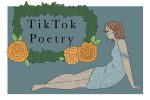If you were taught to learn all about Shakespeare, Kurt Vonnegut, Mark Twain or even Emily Dickinson in your high school English classes, then you are familiar with the lack of diverse authors that make it into the teaching curriculum. The canon consists of a lot of old and traditional pieces from different authors, but they are almost all cis white men. More recently, though, things have been changing.
Class reading lists are including more female authors, such as Toni Morrison, Gwendolyn Brooks and Sylvia Plath. However, even many of these emerging women writers were either black or white, leaving Hispanics out of the curriculum.
Were you able to name a Hispanic author besides Sandra Cisneros by your senior year of high school? I wasn’t, and I only knew of Cisneros because I did my own research; I was never taught any of her work until my sophomore year of college. Doesn’t that say something?
The good news is: the literary world is constantly evolving. More and more women are being published, new topics, such as LGBTQ characters or police brutality, are being discussed, and the best part? People can’t get enough of it. And when it comes to the authors behind this new wave of literature, Elizabeth Acevedo, a Dominican-American poet and author, is the one you need to know.
Acevedo has been writing since she was young, but she officially began doing slam poetry when she was 12. Now, when she takes the stage, it is captivating. Her voice is raw, articulate with empowerment and soul (as well as an accent!). She hides no pride and shows no fear behind a microphone, capturing listeners with each word, hand movement, inhalation or crescendo.
One of her most enticing performances is of a poem titled “Afro-Latina.” Though the video dates to 2015, I didn’t discover it until last year, but the moment I did I fell in love. I appreciated the representation so much because, in the poem, she talks about hiding her Afro-Latina norms as a kid: straightening her wild, curly hair, eating McDonald’s, being ashamed of her own mother’s “eh-brokee englee,” growing to hate her own skin.
She reminds listeners that her heritage dates back to when the Aztecs, Mayans and Incas ruled Central America, but that their dynasties were cut short at the hand of the white European man. I cannot relate to the first part of the term Afro-Latina, but I can definitely resonate with the latter, which is why Acevedo’s poetry is so important to me and to those who feel their voice does not exist.
Over the years, Acevedo has continued to improve her craft. Not only does she hold a Bachelor of Arts in performing arts from George Washington University and a Master of Fine Arts in creative writing from the University of Maryland, but she has also been a Cave Canem fellow, Cantomundo fellow and participant in the Callaloo Writing Workshops. She is also a National Poetry Slam Champion, and has won a number of other accolades for her 2018 young adult novel, “The Poet X.”
When she was an 8th grade English teacher, Acevedo noticed that a lot of her students were wondering why there were no characters who looked like them when they read assigned books. (Her students were 90 percent Latino.) These students saw the underrepresentation of their own people, so Acevedo decided to take it into her own hands and write what they were looking for.
Because both of her parents are from the Dominican Republic, the author really wanted to tap into her roots. Even though it took a couple of years, she focused on a story about finding your own voice, something that mattered so much to her as an educator of students who were at a crossroads when it came to reading.
After digging into her old journals, Acevedo plumbed her own depths to help her create “The Poet X.” The novel follows Xiomara, a young girl in Harlem who finds poetry when she is feeling unheard. A smart young lady, she channels her frustration into lines in her notebook, one of her few forms of escape.
Because she is always writing, she is asked to join her school’s slam poetry club, but because of her mom’s devout religious opinions, she is scared to accept the invite. Just as Acevedo hesitated to follow her literary dreams because of her background, Xiomara is constantly in fear of being discovered by her mom. As her own website puts it, “In the face of a world that may not want to hear her, Xiomara refuses to be silent.”
If Acevedo’s slam poetry or young adult novel interests you, be on the lookout for her next novel, called “With the Fire on High,” which is being released on May 7. This novel is about a freshman who gets pregnant but secretly has hopes and dreams about becoming a master chef. Her main way of coping with her struggles between school, being pregnant and her grandmother lie atop the kitchen stove.
















